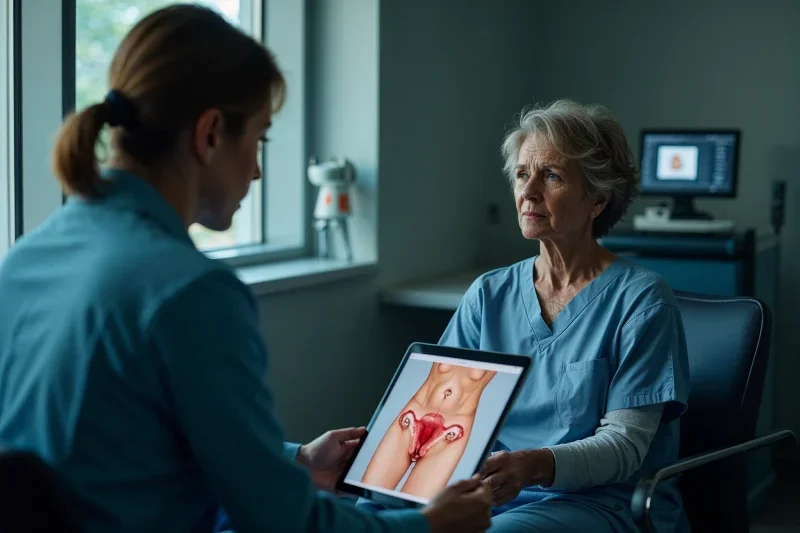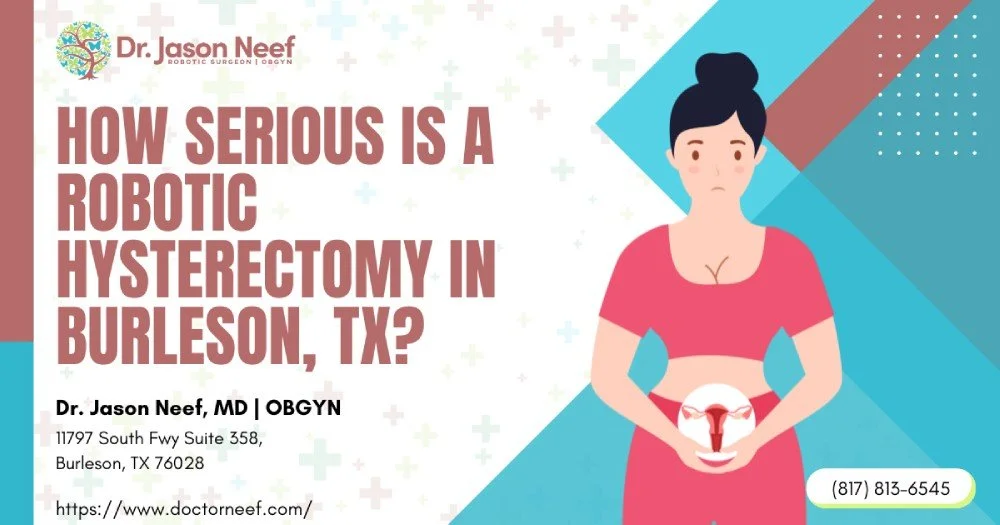Proper preparation for robotic hysterectomy surgery helps ensure the best possible outcome. Following a complete checklist reduces risks and speeds up your recovery. Good preparation also helps you feel more confident and ready for surgery day.
Read MorePreparing for robotic hysterectomy involves more than just physical readiness. Your emotional and mental preparation plays a key role in your surgery success. Many women experience anxiety, stress, and concerns about body image before this procedure.
Read MoreRobotic hysterectomy recovery takes about 6 to 8 weeks for most patients. This surgery uses small cuts instead of one large opening. The small cuts heal faster and cause less pain than traditional surgery.
Read MoreRobotic hysterectomy uses small incisions to remove the uterus. This method causes less pain than traditional open surgery. It also leads to faster recovery times.
Read MoreRobotic hysterectomy represents a significant advancement in women's surgical care, offering enhanced safety and better outcomes compared to traditional surgical approaches.
Read MoreIn the Burleson–Fort Worth area, conversations about hysterectomy rarely take long to mention the two most popular minimally invasive approaches: robotic-assisted laparoscopic hysterectomy and conventional laparoscopic hysterectomy.
Read MoreRobotic technology has changed the face of modern medicine, but even the most advanced surgical systems—whether a da Vinci® surgical system in urology or a robotic-arm assisted technology platform in orthopedics—have limitations.
Read MoreThinking about scheduling a robotic hysterectomy in Burleson, TX—or anywhere in the wider Dallas-Fort Worth area? If so, recovery time is likely your first concern.
Read MoreA noticeably larger abdomen after a robotic hysterectomy often surprises many patients in the Dallas-Fort Worth area, yet the cause is usually a predictable mix of post-surgical swelling, residual gas, and temporary constipation rather than a serious complication such as stomach cancer.
Read MoreEndometriosis can cause severe pelvic pain, infertility, and ongoing inflammation that disrupt daily life. For those who haven’t found relief with medication or less invasive treatments, robotic hysterectomy offers a surgical solution.
Read MoreA hysterectomy is a significant surgical procedure, and choosing a robotic, minimally invasive approach can make recovery smoother. Yet many patients still wonder, “Will I lose weight after surgery?” While robotic hysterectomy is not a weight loss surgery like gastric sleeve or other bariatric surgeries, the immediate post-operative period can trigger short-term changes on the scale.
Read MoreWondering how serious a robotic hysterectomy really is? Living in Burleson or the greater Dallas–Fort Worth area, you’ve probably heard friends praise shorter hospital stays after da Vinci surgery. Yet surgery is surgery, and you deserve a clear answer.
Read More











